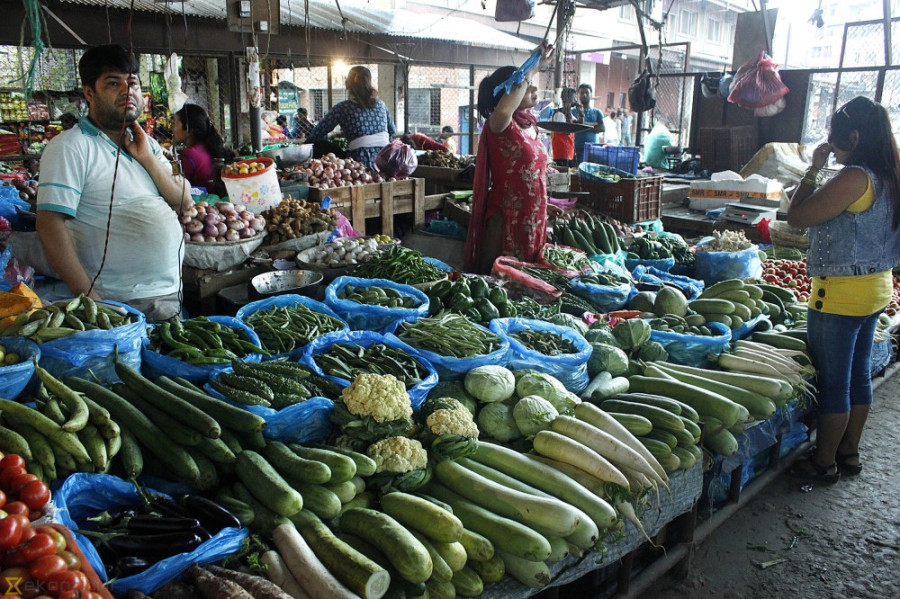National
Decisions over pesticide tests reveal how the government takes ad hoc measures
Agriculture Ministry says it was kept in the dark by the Cabinet while deciding to conduct tests and again while withdrawing the decision
Rajesh Khanal
A remarkable volte-face on pesticide residue tests for agricultural produce imported from India has not only exposed how the government seems to take arbitrary decisions, but also just how disorganised government agencies are.
Two weeks ago, the Cabinet swiftly gave approval to a proposal by the Ministry of Commerce to make pesticide residue tests mandatory for fresh vegetables and fruits imported from India. Soon, hundreds of trucks laden with agricultural goods started queuing up at the Nepal-India border points as officials scrambled to performs tests. A shortage of technicians, equipment and laboratories at checkpoints meant that samples were to be brought to Kathmandu for tests, which would take time.
As truckers waited for the results, fruits and vegetables started rotting, stoking concerns among traders. Since the truckers were all from India, the Indian Embassy in Kathmandu intervened.
But on Friday, the Cabinet withdrew the decision to perform the pesticide residue tests, allowing fruits and vegetables to enter Nepal. The government was roundly criticised both on and off social platforms, with many saying it was letting pesticides into Nepali kitchens.
On Sunday, the Ministry of Agriculture and Livestock Development expressed its dissatisfaction at the government’s decision on the grounds that it was not consulted at all.
“There are many cross-cutting issues related to both the ministries—commerce and agriculture. But the Commerce Ministry decided to take the proposal to the Cabinet without consulting us,” Minister for Agriculture Chakrapani Khanal told the Post. “Now, there is no option but to implement the latest Cabinet decision.”
The Agriculture Ministry says the Cabinet kept it in the dark while recalling both the decisions.
Speaking at a meeting of the National Assembly on Sunday, Khanal said that the ministry had learned about the decision to conduct pesticide residue tests on imported farm products only after it was published in the Nepal Gazette on June 17.
While the government has said that tests were halted due to a lack of technicians and equipment, Khanal said there were enough laboratories not far from the border points through which the country imports a majority of farm products. Around 44 percent of fruits and vegetables consumed in the country are imported from India.
“The government should not have withdrawn the decision on the pretext of unavailability of infrastructure. There are seven chemical testing labs in six provinces, except in Karnali Province,” said Khanal. Testing facilities are up and running in Birtamod, Sarlahi, Kalimati, Pokhara and Butwal, he said.
The decision to not conduct chemical tests on fruits and vegetables imported from India has also invited criticism from within the ruling Nepal Communist Party (NCP).
Lawmakers at Saturday’s Parliamentary Party meeting sought answers from Prime Minister KP Sharma Oli on why the government “had bowed to Indian pressure”.
While Oli denied any communication from India regarding the government’s decision to halt mandatory pesticide tests, Indian Embassy officials, on Thursday, confirmed to the Post that they had held talks with government officials “to urge them to install necessary infrastructure at accessible locations before implementing the new rule”.
On Friday, the Cabinet also decided to build the required infrastructure within the next six months so that it can continue to conduct chemical tests on imported fruits and vegetables.
“We have asked the Finance Ministry to provide Rs4 billion to build testing facilities,” said Khanal. “But it will take at least 10 months to build well-equipped facilities even if we start work today.




 16.12°C Kathmandu
16.12°C Kathmandu














